'The best job in the world': Dietitian for NBA's Timberwolves is Mount Saint Vincent grad
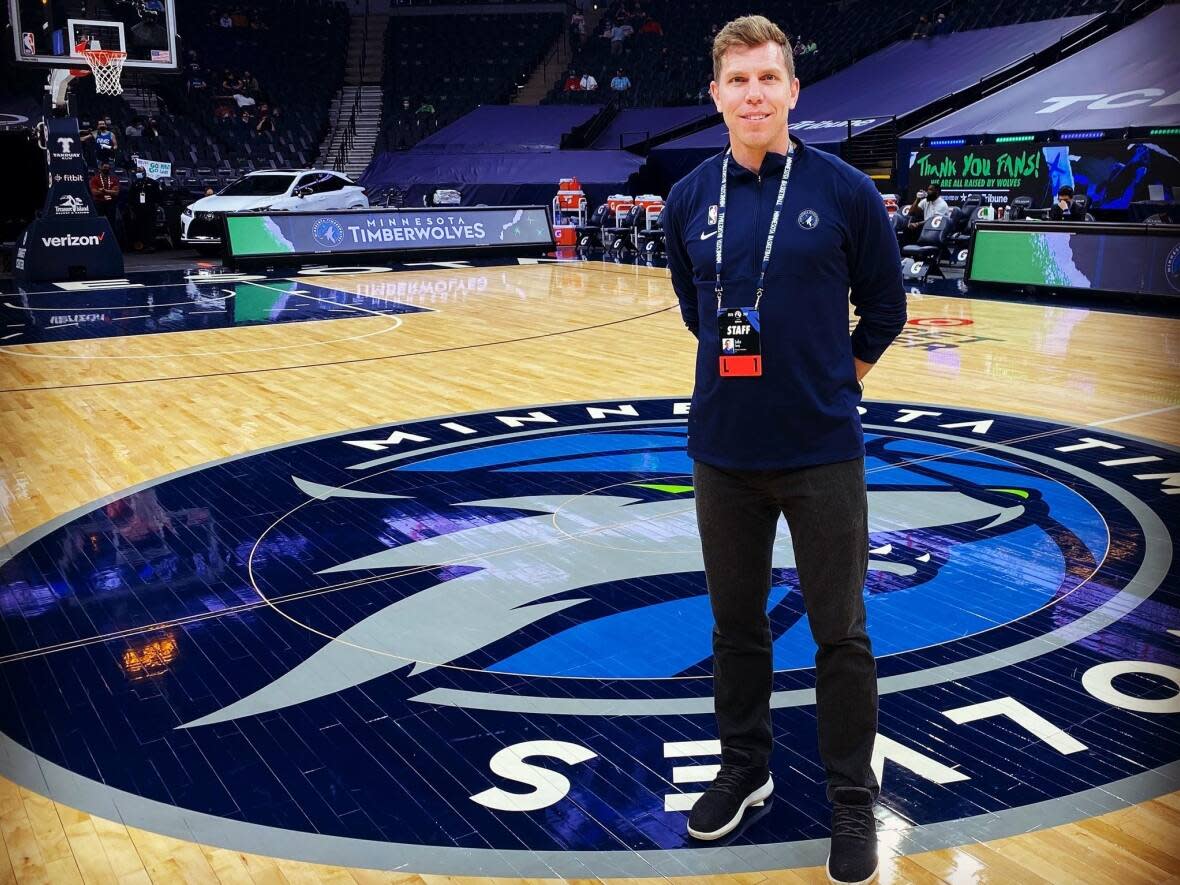
The dietitian for the NBA's Minnesota Timberwolves says he owes some of the credit for his career to his days as the head coach of Mount Saint Vincent University's men's soccer team.
Luke Corey attended the Halifax university from 2005-08 and received a degree in applied human nutrition.
Having used up his eligibility during his previous degree when he played varsity soccer at Queen's University in Kingston, Ont., Corey wanted to remain involved in the sport.
He contacted the Mount's men's soccer coach and asked if he could help out. The coach took him on as an assistant coach.
During his final year of studies, he became the head coach, but the focus wasn't just on what was happening on the pitch.
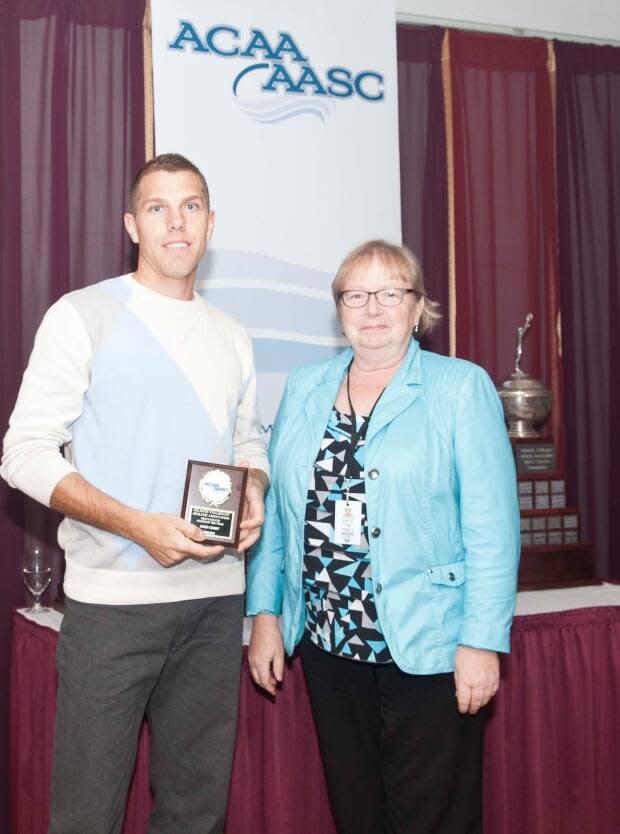
"They were my guinea pigs," said Corey, who grew up in Edmonton but moved to Ontario during high school.
He'd talk to the team about the importance of nutrition to athletic performance and would hold individual meetings with players.
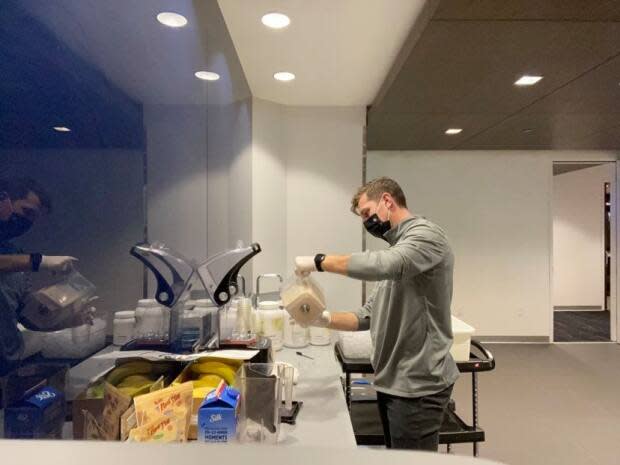
"That was my opportunity to take this knowledge and these skills that I developed in school and actually apply it to the people I'm working with," said Corey. "It was fun, it was like a little experiment."
Corey was the head coach for eight seasons and, after graduation, his work in Halifax included running a business focused on sports nutrition.
In 2014, he moved to Minnesota to work for EXOS, a performance and training nutrition company that works with some of the best athletes in the world. He said he's worked with NHL, NFL, MLB and Olympic athletes in this position.
After a stint in Los Angeles, Corey returned to Minneapolis in 2019, now working with EXOS at the Mayo Clinic Orthopedics and Sports Medicine. He maintains this role, in addition to being the Timberwolves' dietitian.

Corey is now in his third year as the team dietitian.
"It's the best job in the world," he said. "I get to work with the best athletes on the planet. I get to sit courtside and watch these guys perform and I ultimately get to see guys improve as athletes and just mature as individuals."
Corey said he still can't believe what he gets to do for a living and loves taking the opportunity to tell his story to show that aspiring dietitians can dream big.
"If this is your dream, your goal, the possibilities are endless for what you can do," he said.
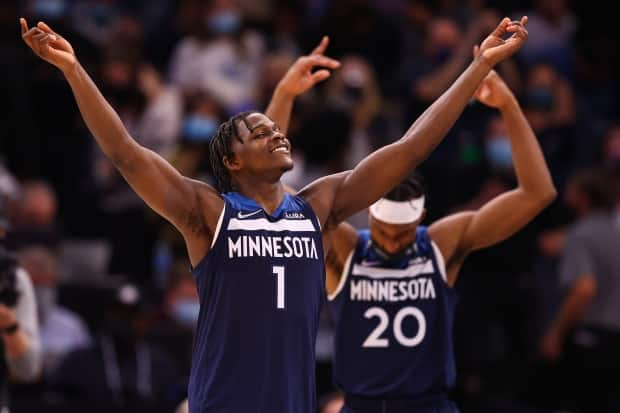
Corey said the team's approach to nutrition is driven by artificial intelligence.
Data is collected constantly on the athletes' performance and they are regularly tested for things like hydration and micro-nutrients. This information is then integrated into a nutrition platform that will create custom diets for the players, while also taking into account what the athlete's workload is like on a given day.
The Timberwolves have a team of chefs who make these meals for the players.
A typical workday
Corey's workday with the Timberwolves depends on whether the team has practice or a game. He said practices usually begin at 11 a.m., but most players will arrive at the facility around 8 a.m. to have their customized breakfast and then hit the weight room before practice.
At practice, Corey ensures the players are hydrated by adding water to electrolyte packages, and he has snacks on hand. He also prepares custom protein shakes for the players to drink after the practice. Then it's lunch time.
Home games usually start around 7 p.m., but Corey said he gets to the arena around 3 p.m. He'll prepare pre-game supplements for the players and perform hydration testing. Custom dinners are prepared for the players and once the game starts, Corey can relax for a bit.
Sitting courtside, he watches the game until close to half-time, before heading back to the locker room to distribute drinks and snacks, which can take the form of something like a protein bar or energy chews.
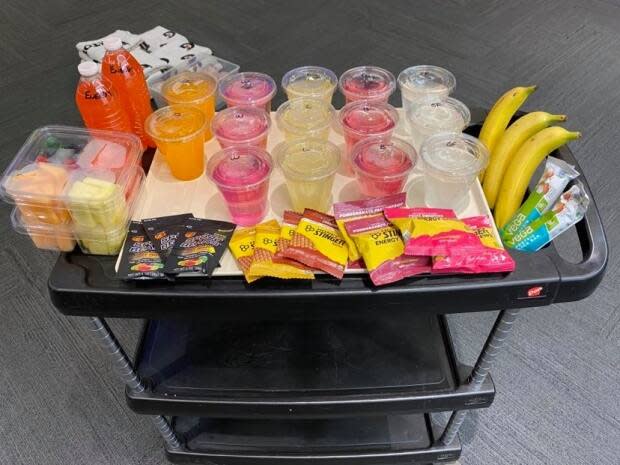
"Whatever is going to get them that fuel and give them that fuel quickly, that's what they typically like to go for," said Corey.
When the players head back for the second half, Corey stays behind in the locker room, making their custom protein shakes.
Making 16 shakes takes him a little more than an hour, which leaves him just enough time to catch the end of the game in person. After the game, the protein shakes are handed out and players have a post-game meal.
Corey said he gets home after 11 p.m., making for a long day, especially given his work with EXOS.
He doesn't travel with the team, but still plans their meals for when they're on the road.
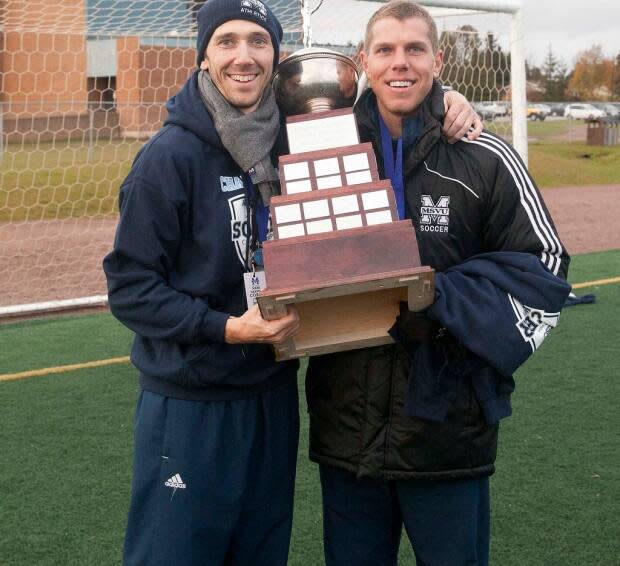
Corey's first season with the Timberwolves was the 2019-20 one. It was proceeding normally and then the COVID-19 pandemic hit, temporarily shutting the league down in March 2020. Out of playoff contention, the Timberwolves' season was done and Corey worked with the players remotely.
"They're all back in their hometowns and working out on their own," he said. "And, you know, I've got to figure out a way to keep them healthy and motivated and doing what they need to do."
When the 2020-21 NBA season kicked off in December, there were numerous restrictions in place because of COVID-19. Besides getting daily COVID-19 tests, mandatory masking, practising physical distancing, few people were allowed to work with the players in person, but Corey was one of them.
Players were no longer allowed to eat their meals at the facility, so they would pick up the meals and eat them in their cars or take them home, said Corey.
Current COVID-19 protocols
This season, things are mostly back to normal for Corey's duties. Players are once again allowed to eat inside team facilities.
Coaches and team staff must be vaccinated for COVID-19, but players aren't required, although unvaccinated players face stricter rules and more frequent testing. As of late last month, the player vaccination rate was around 95 per cent.
Staff and vaccinated players are tested for COVID-19 only once a week, said Corey. Interaction with the players is no longer limited and masking isn't mandatory, but Corey continues to wear one.
"I've got a one-year-old daughter at home," he said. "I'm not going to take any risk and so quite a few people still wear masks."
MORE TOP STORIES

